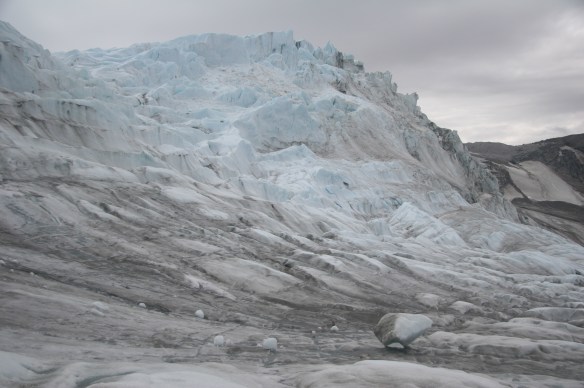The wide expanse of Greenland offers perspective. 



Tag Archives: Greenland
Rocks of Greenland
Rockwell Kent in Greenland
Rockwell Kent (1882-1971), an enigmatic artist from New York, spent an extraordinary year painting on a remote island in Greenland in 1931-32 and went on to write a book about his experience, Salamina. 




Silent Danger: Icebergs Calving
We hiked along the Ilulissat Ice Fjord Trail on our third day in Greenland. 



We hadn’t even time to sit when the water suddenly surged – not a tsunami, but a swell of several feet – and crushed everything we had just photographed. (The end of which I caught on video.)

The WOR tourists of Greenland
The biggest problem with tourism in Greenland is the price. 



Paul-Emile Victor’s Arctic Garbage
Although today’s tourists are well schooled on not leaving their trash behind, it certainly wasn’t the pattern of the past. 





Icebergs & Glaciers in Greenland
80% of Greenland is covered by snow and ice. 








Ilulissat, Greenland
Ilulissat, a town of 4500 people, is the hub for tourism in Greenland; it sits at 69 degrees north, 120 miles above the Arctic Circle.



Unplugged in Greenland
I was in the cold and bright of the far north over the past two weeks; instead of computer and ipod, I was consumed by constant daylight and the sound of ice collapsing into the sea.
It took time to accept that my electronic feed was gone and there was nothing else but the cold world all around.
Greenland Reading: Gretel Ehrlich’s “This Cold Heaven”
Gretel Ehrlich’s This Cold Heaven provides a first-person account of life in the cold and dark of Greenland. 
Ahead, the ice foot narrowed like a waist, then widened again. Snow turned to sun; we slid from winter into summer. 
Ehrlich does have a tendency to repeat herself and romanticize the harsh elements, but all is forgiven for her moments of insight and enduring adventurous spirit.
















